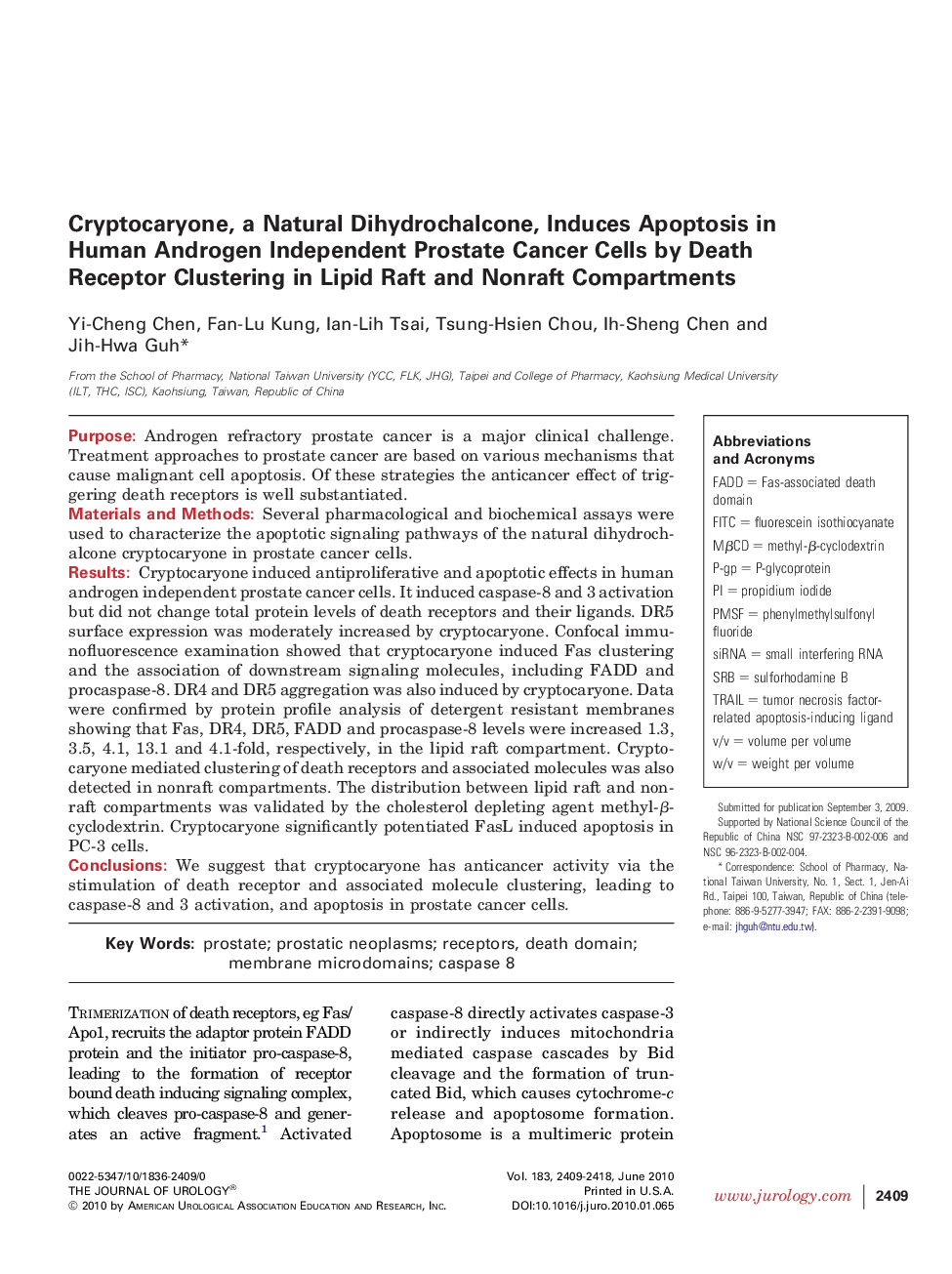| کد مقاله | کد نشریه | سال انتشار | مقاله انگلیسی | نسخه تمام متن |
|---|---|---|---|---|
| 3866120 | 1598963 | 2010 | 10 صفحه PDF | دانلود رایگان |

PurposeAndrogen refractory prostate cancer is a major clinical challenge. Treatment approaches to prostate cancer are based on various mechanisms that cause malignant cell apoptosis. Of these strategies the anticancer effect of triggering death receptors is well substantiated.Materials and MethodsSeveral pharmacological and biochemical assays were used to characterize the apoptotic signaling pathways of the natural dihydrochalcone cryptocaryone in prostate cancer cells.ResultsCryptocaryone induced antiproliferative and apoptotic effects in human androgen independent prostate cancer cells. It induced caspase-8 and 3 activation but did not change total protein levels of death receptors and their ligands. DR5 surface expression was moderately increased by cryptocaryone. Confocal immunofluorescence examination showed that cryptocaryone induced Fas clustering and the association of downstream signaling molecules, including FADD and procaspase-8. DR4 and DR5 aggregation was also induced by cryptocaryone. Data were confirmed by protein profile analysis of detergent resistant membranes showing that Fas, DR4, DR5, FADD and procaspase-8 levels were increased 1.3, 3.5, 4.1, 13.1 and 4.1-fold, respectively, in the lipid raft compartment. Cryptocaryone mediated clustering of death receptors and associated molecules was also detected in nonraft compartments. The distribution between lipid raft and nonraft compartments was validated by the cholesterol depleting agent methyl-β-cyclodextrin. Cryptocaryone significantly potentiated FasL induced apoptosis in PC-3 cells.ConclusionsWe suggest that cryptocaryone has anticancer activity via the stimulation of death receptor and associated molecule clustering, leading to caspase-8 and 3 activation, and apoptosis in prostate cancer cells.
Journal: The Journal of Urology - Volume 183, Issue 6, June 2010, Pages 2409–2418